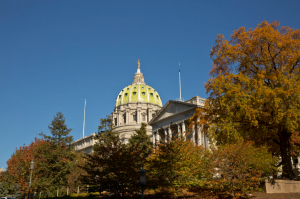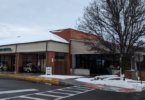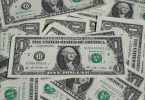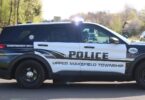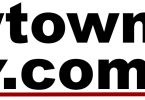State Sen. Mario Scavello would like to completely eliminate property taxes for homeowners in the state of Pennsylvania, and he recently put forth a bill that would do just that. It’s not the first time he’s tried to accomplish that goal, but this time around he has a powerful new ally on his side – the voters.
In the past, when Scavello and other legislators tried to take on property taxes, one of the key arguments against their elimination was the fact that the Pennsylvania Constitution prevented any new law from differentiating between taxes on primary residences and other types of property, such as rental properties, businesses or vacation homes.
But in November 2017, state voters overwhelmingly approved a constitutional amendment that gives lawmakers the ability to adjust property taxes for primary residences while leaving other property taxes unchanged.
With that in mind, Scavello, R-Tannersville, has introduced Senate Bill 1137, which ends property taxes in the state as the funding mechanism for schools. To compensate for that loss in revenue, Scavello’s proposal would increase the state income tax by 1.98 percent, on top of the existing flat rate of 3.07 percent.
During a brief news conference at the Capitol to announce the legislation, Scavello talked this week about the ongoing problem of seniors losing their homes because they live on fixed incomes and lack the flexibility to adjust for rising property taxes.
“I have an elderly widow in my district, who when she lost her husband, lost $6,500 of her income,” Scavello said. “Her taxes went from $400 when they retired, debt free, $400, and today her taxes are over $4,000. … And she says, ‘at age 88, my only regret is that I’ve lived too long.’ Just imagine that, ‘I’ve lived too long.’ … And that is what my constituents face in my district.”
Scavello emphasized that the funds collected by the new “education tax” portion of the income tax would be dedicated specifically to education and not usable for any other purpose.
“These dollars go into a separate pot, … we’re not taking this money and it’s going into general fund,” he said. “The Department of Treasury will have its own account and it goes back to the school district. It’s similar to the way they get their payments from the state [now].”
The bill’s senate cosponsors include Republican Bob Mensch and Democrats Lisa Boscola, James Brewster and John Yudichak. The day of the news conference, Scavello and Boscola later made a joint appearance on a call-in TV program on the PCN channel to talk in more depth about the legislation.
Boscola said that the state’s high property taxes were not only costing seniors their long-time homes, but they were preventing prospective homeowners from making a purchase.
“We’ve got younger people that can’t even afford to buy a home anymore because their mortgage is less than the property tax bill would be,” she said. “So we’re clearly going in the wrong direction on how we’re funding schools.”
Scavello and Boscola said they were willing to make adjustments to the bill if needed to gain the necessary support for passage. They both suggested that adding a sales tax component, to lessen the income tax hike, might be a reasonable compromise.
“[If] you want to see a little bit of sales tax in this bill, I don’t mind reducing the personal income tax to put some sales tax in,” Scavello said. “There’s no free lunch here, if you get rid of a tax you’ve got to find the money somewhere else.”
The bill includes a mechanism to increase money to districts based on “cost-of-living” adjustments, and it creates a reserve fund so that fluctuations in income tax collections in times of a weak economy don’t leave school districts short of funding.
Boscola gave assurances that if SB1137 is passed by the Legislature, Democratic Gov. Tom Wolf would sign it.
“He said if the Senate and House vote on a bill, he will be supporting it,” she said. “He also believes that this would help the economy, because if you eliminate property taxes, some people are going to have money in their pocket to go out and buy things, so then if we go to more toward sales tax, the more money going into education.”
Senate Bill 1137 is currently awaiting consideration by the Senate Finance Committee.



